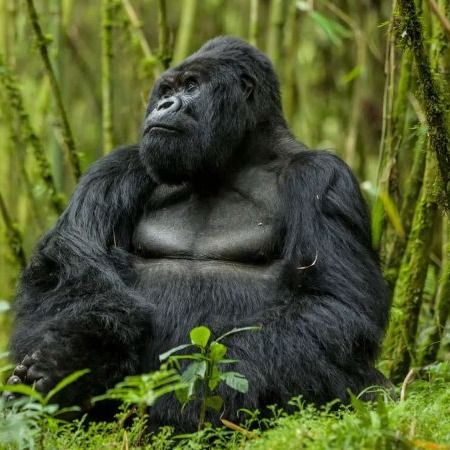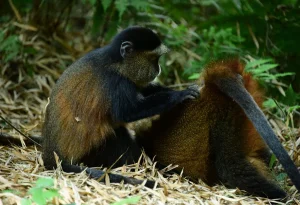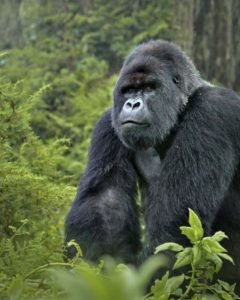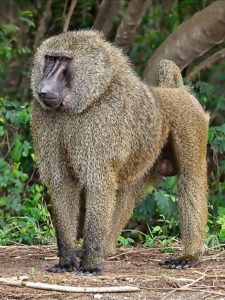Rwanda, known as the “Land of a Thousand Hills,” is celebrated for its breathtaking landscapes, unique wildlife, and inspiring story of resilience. This small East African country offers a rich blend of natural beauty, vibrant culture, and forward-thinking governance that has made it a standout destination on the African continent. From mountain gorilla trekking to sustainable tourism and urban cleanliness, Rwanda continues to earn recognition on the global stage. What is Rwanda famous for?
Why is Rwanda known for gorilla trekking?
One of the most iconic experiences Rwanda is famous for is mountain gorilla trekking. Rwanda is one of only three countries in the world where you can encounter mountain gorillas in the wild. The majestic Volcanoes National Park, located in the Virunga Mountains, is home to several habituated gorilla families. Tourists travel from all over the world to trek through the misty rainforest and spend an unforgettable hour observing these incredible primates up close. What is Rwanda famous for?
This experience is not just about wildlife viewing—it supports conservation and contributes directly to local communities. Gorilla trekking in Rwanda is strictly regulated to ensure both visitor safety and minimal impact on the gorillas, making it one of the most ethical and powerful wildlife experiences available. What is Rwanda famous for?
How has Rwanda become one of Africa’s cleanest and safest countries?
Rwanda has earned a reputation as one of the cleanest and safest countries in Africa. Kigali, the capital, is widely regarded as the cleanest city on the continent. This is largely thanks to progressive environmental policies, including a national ban on plastic bags and the monthly Umuganda community service initiative, where citizens work together to clean public spaces and improve local neighborhoods.
Safety is also a major draw. Rwanda maintains a low crime rate and has built a stable and welcoming environment for tourists. Visitors can explore the country with confidence, supported by strong infrastructure and a visible sense of public order and civic pride.
What is Rwanda’s history of resilience and reconciliation?
Rwanda is also known worldwide for its powerful journey of national reconciliation following the 1994 Genocide against the Tutsi. Over 800,000 people were killed in just 100 days during one of the darkest moments in modern history. Since then, Rwanda has worked tirelessly to rebuild, unify its people, and ensure that such a tragedy never happens again.
Memorial sites such as the Kigali Genocide Memorial offer somber yet vital places of reflection and education. These sites honor the lives lost while promoting messages of peace, forgiveness, and unity. Rwanda’s post-genocide recovery is viewed globally as a remarkable story of resilience, human dignity, and forward movement.
What makes Rwanda a leader in conservation and sustainable tourism?
Rwanda has emerged as a trailblazer in conservation and eco-tourism. The country has invested heavily in protecting its national parks, wildlife, and ecosystems while integrating local communities into tourism initiatives. This approach ensures that conservation benefits both nature and people.
Parks like Akagera National Park and Nyungwe Forest National Park have undergone remarkable transformations. Akagera now boasts the Big Five—lion, leopard, eleph nt, buffalo, and rhino—thanks to successful reintroduction programs. Nyungwe, one of Africa’s oldest rainforests, is a haven for primates, birds, and botanical diversity.
In addition, Rwanda hosts the annual Kwita Izina ceremony, where newborn mountain gorillas are named in a high-profile conservation event attended by global conservation leaders, scientists, and celebrities. This unique tradition highlights Rwanda’s commitment to protecting its wildlife while raising awareness worldwide.
Why is Rwanda’s landscape so unique and picturesque?
Rwanda’s nickname, the “Land of a Thousand Hills,” reflects its stunning topography of rolling green hills, terraced farmland, and dramatic mountain ranges. From the towering volcanoes of the north to the lush forests and scenic lakes of the west, the country’s varied landscapes offer endless natural beauty.
Lake Kivu, one of Africa’s Great Lakes, is a popular destination for relaxation, kayaking, and cultural exploration. The Virunga Mountains provide a dramatic backdrop for trekking adventures, while the remote countryside offers quiet moments of reflection surrounded by nature.
Whether exploring waterfalls in Nyungwe or enjoying sunsets on Lake Kivu, Rwanda’s natural scenery leaves a lasting impression.
What can travelers experience in Kigali?
Kigali, Rwanda’s capital, has gained international attention as a model for modern urban development in Africa. It is a city that combines innovation with tradition and sustainability. Kigali’s cleanliness, safety, and orderliness are matched by a vibrant cultural scene.
Travelers can visit art galleries, craft markets, and coffee shops, or dine at fine restaurants featuring Rwandan and international cuisine. The Kigali Genocide Memorial offers an important historical perspective, while neighborhoods like Nyamirambo showcase everyday urban life with a mix of old and new.
Kigali is also a gateway to Rwanda’s national parks, making it a convenient and enjoyable place to start or end a journey through the country.
What kind of cultural experiences does Rwanda offer?
Rwanda is a culturally rich country with deep traditions in music, dance, and storytelling. Visitors have the opportunity to engage with this culture through traditional performances, community visits, and interactive experiences.
In areas like Musanze near Volcanoes National Park, travelers can visit cultural villages where they learn about traditional Rwandan life, including cattle keeping, banana beer brewing, basket weaving, and more. The Intore dance, with its energetic moves and colorful costumes, is one of Rwanda’s most iconic cultural expressions.
These experiences offer more than entertainment—they foster understanding and appreciation of Rwanda’s diverse heritage.
Where can you see primates besides gorillas in Rwanda?
In addition to mountain gorillas, Rwanda is home to a wide variety of primates. Nyungwe Forest National Park, a vast rainforest in the southwest, is famous for chimpanzee tracking and is home to 13 species of primates, including black-and-white colobus monkeys, L’Hoest’s monkeys, and blue monkeys.
Golden monkeys, another endangered species, can be tracked in Volcanoes National Park. These playful and colorful primates offer an engaging trekking experience, usually shorter and less strenuous than gorilla trekking.
For primate enthusiasts, Rwanda provides exceptional opportunities to observe rare and charismatic species in their natural habitats.
Why is Rwanda a top destination for birdwatching?
Rwanda is a paradise for bird lovers, offering over 700 recorded bird species. It is part of the Albertine Rift, a region known for high levels of bird endemism. Birding can be enjoyed in various ecosystems, from wetlands and lakeshores to high-altitude forests.
Nyungwe Forest is particularly popular among birdwatchers, with sought-after species such as the Ruwenzori turaco, regal sunbird, and red-collared mountain babbler. Akagera National Park offers savannah species and wetland birds, including the rare shoebill stork.
Birding tours in Rwanda are well-guided and supported by eco-lodges that cater to specialist interests.
How is Rwanda attracting luxury and responsible travelers?
Rwanda has positioned itself as a premier luxury safari destination with a strong focus on responsible tourism. World-renowned hospitality brands have established eco-luxury lodges in Rwanda, offering top-tier experiences in harmony with the environment.
Lodges like One&Only Gorilla’s Nest, Bisate Lodge by Wilderness Safaris, and Singita Kwitonda provide elegant accommodations, fine dining, and immersive nature experiences. These properties often contribute to reforestation projects, community development, and conservation education.
Rwanda appeals to travelers who value exclusivity, privacy, sustainability, and authenticity. It’s a country where luxury and ethics go hand in hand.
Why does Rwanda stand out as a travel destination?
Rwanda’s fame lies not only in its wildlife and scenery, but also in its unique story of recovery and innovation. It’s a country that has defied expectations, transforming itself from a place of tragedy to one of Africa’s most celebrated success stories.
From unforgettable wildlife encounters to warm cultural connections, Rwanda offers a travel experience that is deeply meaningful and beautifully enriching. It is a country where every journey feels purposeful, where nature and humanity exist in balance, and where visitors leave with not just memories, but inspiration. What is Rwanda famous for?
Whether for gorilla trekking, conservation tourism, cultural immersion, or scenic adventure, Rwanda offers more than a holiday it offers perspective, peace, and profound connection. What is Rwanda famous for?




